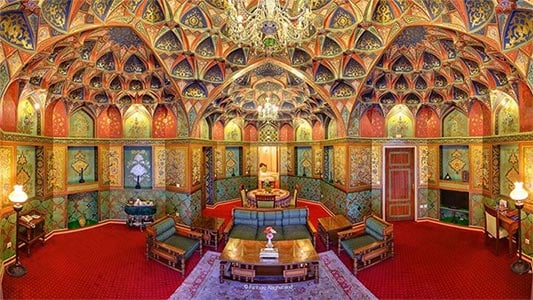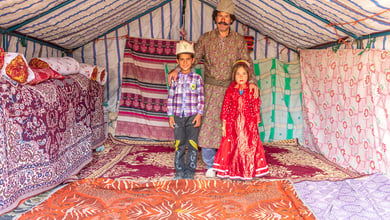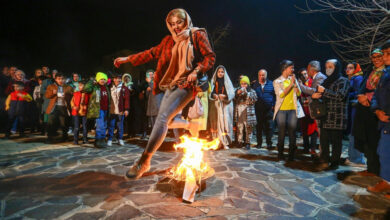Yalda Night: Celebrating the Longest Night of the Year
Experience Yalda Night: Celebrating the Winter Solstice in Iran
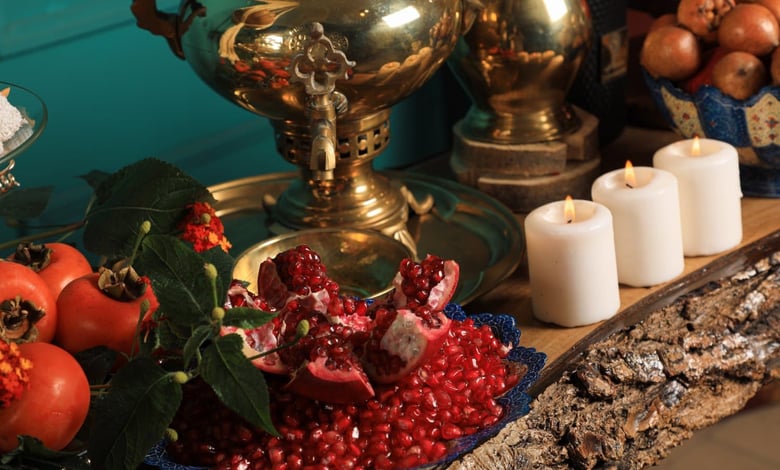
Yalda Night, also known as Cheleh Night, is an ancient Iranian festival that dates back to ancient times. It is celebrated as the longest night of the year. Yalda night occurs between sunset on December 21 and sunrise on December 22. In the past, Iranians gathered at the base of the Alborz mountains, patiently awaiting the sunrise. They engaged in prayer ceremonies, expressing their hopes for the triumph of love and goodness over evil.
The Cheleh night, regarded as the longest night of the year, holds significant historical importance in the ancient Iranian calendar, dating back to 502 BC. It was officially recognized in the calendar during the reign of Darius I.
Yalda, also known as the night of the sun’s birth and the manifestation of the god Mehr in Mehr and Zoroastrian rituals, is celebrated during this time. Furthermore, this festive occasion is observed in neighboring countries of Iran, with each region having its unique customs and traditions.
Contents
Yalda’s Word Root
Yalda holds significance as a feminine name denoting “the final evening of autumn and the lengthiest night of the year.” With its origins rooted in Syriac, this term is employed in Persian to represent one of the Iranian celebrations. Certain references have associated the meaning of “growth and birth” with this word.
Celebration Of the Winter Solstice in The World

Yalda night is observed in various countries including Iran, Afghanistan, Tajikistan, Turkmenistan, and Azerbaijan, and some European countries.
Yalda in Pakistan
In Pakistan, the people have been observing Yalda night for a long time and have a unique tradition; where men visit a special bath on this occasion.
Yalda in Japan
In Japan, Yalda night is referred to as Tuoji – توئوجی and is celebrated to express gratitude towards the sun as the days become longer after the last day of autumn. Japanese individuals also take a special bath during Yalda night and use the orange scent as a perfume, believing that it eliminates negative energies and protects them from the cold throughout the winter season.
Yalda in Scotland
Yalda Night has also reached Europe, including Scotland. The Yalda night celebration in Scotland bears resemblance to the Yalda ceremony in Iran. Scottish individuals gather with their families and visit the homes of their friends and neighbors to spend this special night together.
Yalda in Africa
Similarly, in West Africa, Yalda is observed, where people adorn themselves in unique attire resembling animals, angels, or devils. They take to the streets, playing local music, to rejoice in the arrival of winter and the commencement of the longer days of the year.
Yalda Traditions
Yalda night, similar to other Iranian ceremonies, encompasses unique traditions and customs. It serves as a symbol of unity and compassion, as individuals come together to share joy and kindness, offering support to one another.
Ghashogh – Zani
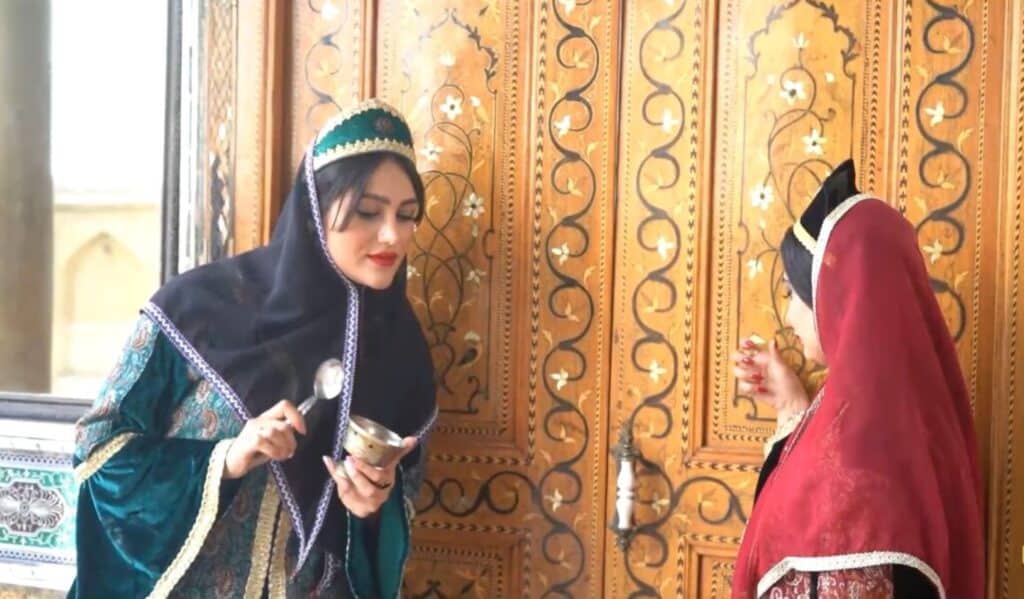
In ancient times, there existed a ritual known as Ghashogh – Zani , where a gathering of women and young girls, adorned in vibrant attire and wielding large spoons, would visit their neighbors’ homes. By rhythmically striking metal containers and trays with their spoons, they would produce a joyous and resonant sound, accompanied by traditional and cheerful melodies. The neighbors would eagerly welcome them upon hearing the harmonious singing and present them with gifts as a gesture of hospitality. This time-honored ceremony continues to be practiced in certain regions of Iran, particularly in the northern provinces of Golestan, as well as the western provinces of Kermanshah and Lorestan.
The origins of this ceremony can be traced back to the ancient beliefs of Iranians, who held the conviction that by creating loud and jubilant sounds, they could repel malevolent and shadowy spirits, while invoking light and happiness from the sun and celestial forces.
Currently, the act of Ghashogh – Zani is exclusively observed during the Chaharshanbe Suri night, and it is no longer practiced on the night of Yalda as it was previously.
Family Gathering

One of the cherished customs among Iranians is to pay a visit to their family elders on significant occasions like Nowruz holidays and other important festivities. On the night of Yalda, it is customary for most families to gather and reunite with their grandparents, creating a new bond and sharing an unforgettable evening. The host warmly welcomes the guests with traditional Iranian cuisine, including an array of delectable fruits and vegetables. Together, they joyously celebrate Yalda until the stroke of midnight, creating lasting memories.
Story Telling and Poet Reading
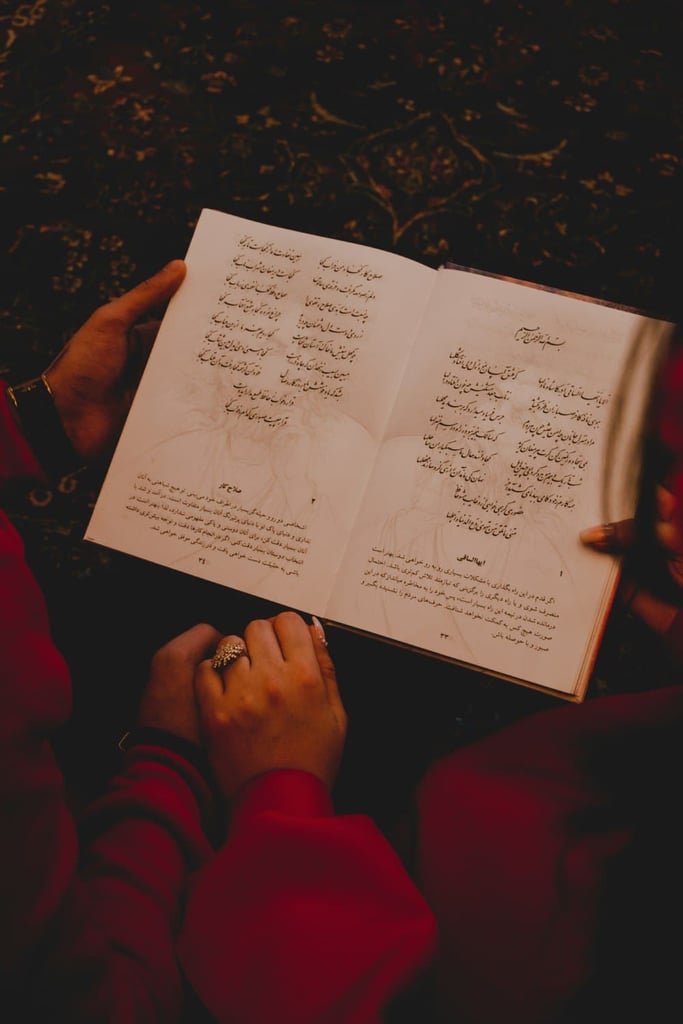
In ancient times, it was customary for the older generation to recite poetry and narrate stories to the visitors, often drawing from the rich tales of the Shahnameh and Hafez. The recitation of Shahnameh stories and the verses of Hafez’s poetry hold a special place in the Yalda traditions. As the night draws to a close, one of the esteemed elders of the family summons Hafez’s wisdom to gain insights into their future.
Serving Fruit and Nuts

Eating nuts and autumn fruits is a cherished tradition during Yalda night, where a delightful assortment of dried fruits and nuts are enjoyed. These delectable treats not only possess numerous beneficial properties but also bring joy and amusement to Iranian.
The fruits that grace the Yalda night table are predominantly red or orange in color, such as pomegranates, watermelons, and persimmons. These warm-hued fruits symbolize happiness, good health, and a comforting ambiance.
Yalda on UNESCO
The recent announcement by UNESCO Cultural Iran and Indian narrative reveals that ‘Yalda/Chella’ has been included in UNESCO’s list of Intangible Cultural Heritage. This significant achievement is the result of the joint efforts of Iran and Afghanistan. It is heartening to see that this development further strengthens the longstanding bond between these two neighboring civilizations. The UNESCO fact sheet aptly describes this ancient tradition as a reflection of cultural identity, hospitality, peaceful coexistence, friendship, and cultural diversity. It emphasizes the exceptional qualities of this event, which have had a profound and positive impact on global culture.
